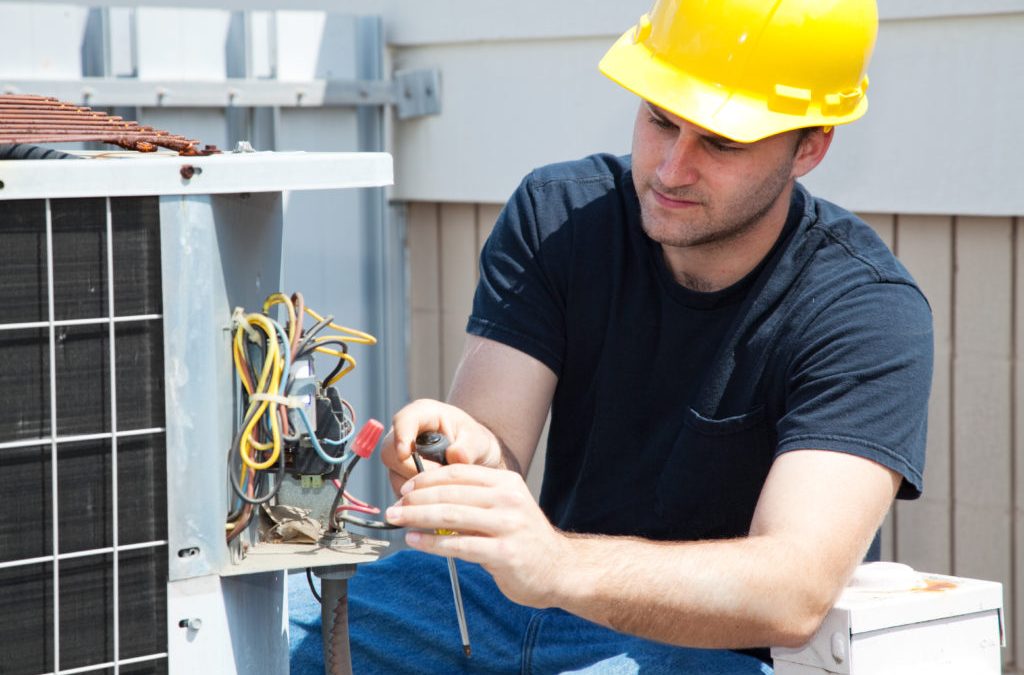Most homeowners don’t often think about the inner workings of their air conditioning system. But when it’s been constantly running in those hot summer months, there is always the chance that something has gone wrong.
One issue that often goes unnoticed by many homeowners is that their AC is low on refrigerant. Thankfully, there are lots of signs to look for, so you know what’s going on!
In this blog post, we’ll cover X signs to help you determine if your AC’s refrigerant levels need adjusting. Keep reading to learn more about how to recognize and address potential issues with a low-refrigerant AC before they become bigger problems down the line.
Have another concern about your AC unit? Visit this site for more information and professionals who can help you out.
Table of Contents
Symptoms of low refrigerant in AC unit
Is your AC low on refrigerant? Here’s how to tell:
1. The compressor is running, but the house is still warm
If the compressor in your air conditioning unit is running and your home is still feeling warm, it may be a sign of low refrigerant.
Refrigerant is what allows the air conditioning system to absorb and transfer heat from one area to another, so having an adequate level of refrigerant is essential for keeping your house at a comfortable temperature.
It is important to have your refrigerant level checked by a professional HVAC technician if you are experiencing constant compressor operation without cooling. If the technician finds that there is indeed low refrigerant, they will need to charge additional refrigerant while troubleshooting other possible problems with the system itself.
2. There’s a lack of airflow coming out of the vents
Have you noticed that there is less air coming through the vents of your air conditioner than usual? This could be a low-refrigerant AC sign. Refrigerant, or coolant gas, allows the cooling process to occur within an air conditioning system. If there’s not enough of it, the ability of the AC to perform its job will decrease drastically.
One way you can check for low refrigerant is by holding a hand up near one of the vents; if the airflow comes out less strongly than before and feels lukewarm, it could be a symptom of low coolant levels. Keep an eye out for this symptom, and don’t hesitate to contact a professional should you suspect any issues with your AC system.
3. The AC is not cooling your home as well as it used to
Low refrigerant can cause your system to operate at a reduced capacity, blow warm air, or stop working altogether. If you are noticing any of these issues with your AC unit, it is likely time for a service call!
Have a qualified technician assess your cooling system and check the refrigerant level so you can get back to staying comfortable in your own home.
4. You can hear the refrigerant leaking
Refrigerant is vital to the cooling process of your refrigerator, so it’s important that you are aware of any low refrigerant signs. To detect a leak in the refrigerant loop, listen for bubbling or hissing. This sound indicates that there may be a leak as air enters or escapes from the system.
If a leak is sensed, further investigation should be done to identify whether the line contains an acceptable amount of fluid for cooling or if more refrigerant needs to be added.
5. Ice is building up on the coils or around the outdoor unit
Ice on a home air conditioning unit can indicate low amounts of refrigerant or Freon in the system. Low refrigerant levels occur when too much Freon is lost from the system due to a leak. It causes the air conditioner to not offer adequate cooling and can lead to extensive damage to components such as coils if not corrected.
It’s important that homeowners have their HVAC systems looked at by experts if they think something may be amiss. Doing this will help ensure that any issues are identified and quickly addressed, so they don’t cause bigger problems down the road.
6. Same AC habits but higher bills
Having the same air conditioner habits but seeing an increase in your electricity bills? One common cause of higher-than-usual power consumption could be low refrigerant levels. Low refrigerant results in the AC being unable to cool the environment properly, causing it to run without pauses for longer and increasing the amount of energy required to maintain a cool atmosphere.
Other signs of low refrigerant include a dehumidifier that no longer cools, warmer air from slats or vents, and frosty pipes. If any of these symptoms appear as well, it might be time to call professional help for an AC checkup before the weather gets too hot.
Is your AC low on refrigerant? Call a professional.
AC units rely on refrigerant to do their job – which is to cool your home. When that refrigerant runs low, it puts extra strain on your unit and can cause big problems down the line.
If you notice one or more of these AC low refrigerant symptoms, the best thing you can do is call a professional as soon as possible. They’ll be able to top off your refrigerant levels, so your AC can keep doing its job during the hot season. And who doesn’t love a nice cool house during a heatwave?
So don’t wait until your unit breaks down completely –- if you think it might be low on refrigerant, give a professional a call today.

